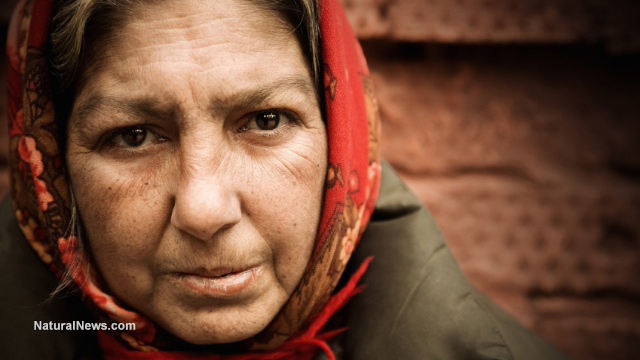Venezuela is in the mist of a major food shortage. Citizens have been lacking basic necessities, such as detergent, toilet paper and oil, for more than a year now. Lines wrap around supermarkets. Even after sitting in line for hours, many Venezuelans still go home empty-handed.
People are growing tired of having to wait hours in line in hopes of getting food. So much so that Venezuelans are now paying each other in order to stand in line for them. A cottage industry that offers to wait in line to purchase food for people in Caracas, the country’s capital, has burgeoned.(1)
Food shortage causes long lines
According to the polling firm Datanalisis, citizens regard the food shortage as the number one problem facing the country. Nevertheless, the government has consistently failed to do address the problem. In fact, many people believe that the government’s mishandling of the situation has actually contributed to the food shortage.(2)
The socialist government in Venezuela is responsible for regulating food prices. Some Venezuelans are purchasing and reselling food in order to make a profit. Economists suggest that these activities are contributing to the food shortage as well.
The food shortage is even worse outside the capital. Lines at a supermarket in Valencia stretch 50 meters from the entrance. Residents have dubbed these kinds of lines as “hope lines,” because by the time people are able to enter the supermarket, it’s devoid of food.(1)
A whopping 600 people stood in line at another supermarket beneath the scorching sun in an effort to purchase powdered milk. In the past, citizens could expect to obtain food after sitting in line for hours. Now, standing in line at the supermarket for hours is no longer a sure means to obtain basic necessities. It’s not uncommon for dozens of police to be stationed at the front of supermarket lines and parking lots in order to mitigate civil unrest. Equally common now is for citizens to visit four or five grocery stores a day scavenging for food.(1)
Low oil prices and leftist government
The Venezuelan Bolivar is the currency of Venezuela. The Bolivar has plummeted recently. Back in May of 2015, for example, it was possible to obtain a dollar for less than 300 bolivars. Now, it requires twice that much.(3)
Others point the finger at the global collapse of oil prices for the food shortage. Oil is the primary source of hard currency in Venezuela. The country imports most of its basic necessities while exporting petroleum products. Venezuela is no longer able to sell oil at a high enough price to meet domestic needs. This has caused the country to have the greatest risk of debt in the world.(3)
There are many economic factors that contribute to Venezuela’s social collapse. At the root of the problem, however, are failed policies implemented by Venezuela’s socialist government. Nevertheless, the government refuses to take responsibility for the shortage of food and continues to promulgate lies to maintain social stability.(4)
No one is sure how bad the food shortage is statistically. The last time the country’s Central Bank released numbers on the short supply was in March 2014. At that time, the Central Bank revealed that approximately 29.4 percent of basic household necessities were in short supply. The situation has only worsened since then.(1)
Officials report that inflation is at 68.5 percent in the country. According to the Cato Institute and Johns Hopkins University, however, the implied annual inflation rate is as high as 808 percent. As the food shortage continues, supermarket lines can be expected to grow.(3)
Sources include:


